Artistically speaking: Anna McGuire
An onstage star since first grade, senior theatre major now finds joy teaching dance to others
Senior Anna McGuire, then a sophomore, performs in “Sondheim on Sondheim.” McGuire is serving as assistant choreographer in the runaway success, “West Side Story.” Photo by Ashley Chamberlain.
February 9, 2018
[masterslider id=”43″]
The Shield: What is your major?
Anna McGuire: I am a performance major with a musical theatre certificate.
TS: What did you apply to when you came to the academy?
AM: I just applied for acting, and then when I was in the room they asked me if I wanted to be a musical theatre certificate. I said yes, but I didn’t really know what it was. And then they had me dance and sing as well in my audition.
TS: Have you always been interested in musical theatre?
AM: I actually haven’t. For a really long time I was into ice skating. I would ice skate a lot, and I would compete and stuff. But with ice skating you have to take ballet class, so I was in ballet class, and I liked performing on the ground more than performing on ice, so ballet kind of led to me performing and then acting and then singing. It all kind of just happened.
TS: Do you still ice skate?
AM: Sometimes. I don’t ice skate competitively. I mean, if I go and ice skate sometimes, I remember some of the things that I used to do.
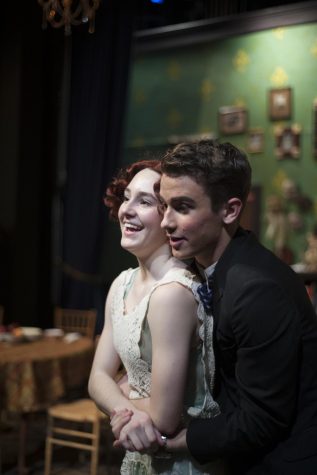
TS: What made you decide to become a major at McCallum?
AM: I just wanted to be at a creative place, because the other options I had for high school were very, not like only academically rigorous, there weren’t as many resources to be creative. There were more options for different mediums of theatre here. There were more opportunities for theatre. I mean, we do two musicals a year and two plays a year, and we can direct and choreograph and write plays and write musicals, so there’s so many more options for that. And the community here is just a lot better than most places.
TS: So is McCallum not your home school?
AM: It’s not. My home school is Anderson, and for a while it was Westwood.
TS: How long have you been acting for?
AM: I think the first time I actually auditioned for something and got in was in like first grade. So it’s been since first grade. So it’s been a while. But I mean, I think up until I was in eighth grade, it was all more for fun; I didn’t really know I wanted to do it seriously because it was so enjoyable that I didn’t think that it was actually something that you could do for a living or actually something that I would want to keep doing.
TS: So when you were younger, that was outside-of-school theatre?
AM: Yeah.
TS: Do you still do that?
AM: Outside-of-school theatre? Yeah, sometimes. I mean, I’m still a part of program that I’ve been in for years outside of school at Zach. I’ve been there for a while. But definitely in high school I gear more towards in school theatre, just because the resources we have here are so good that I wanted to make use of it.
TS: Do you prefer musicals or straight plays?
AM: I prefer the plot over either one. Like, I feel like as long as the story is good, I don’t care if they sing or not. If the story is really good and the characters are really good I love it, even if they don’t sing. But I mean, obviously, if I had to choose between a musical theatre version of the same story versus a play version of the same story, I would probably go with the musical version.
TS: So is there an example of a musical or play that you’ve done, especially at McCallum, that has had those really developed characters or plot that you like?
AM: Yeah. One of my favorite ones is probably Titanic, because they were all real characters, because we decided not to go with the more commercial version of Titanic with Jack and Rose. It was actually all the characters and their storylines and stuff. I mean obviously it was a little more drama than probably what happened, but I like that more than just [putting of a show] for the sake of putting on a show and entertaining people. It actually tells a story.
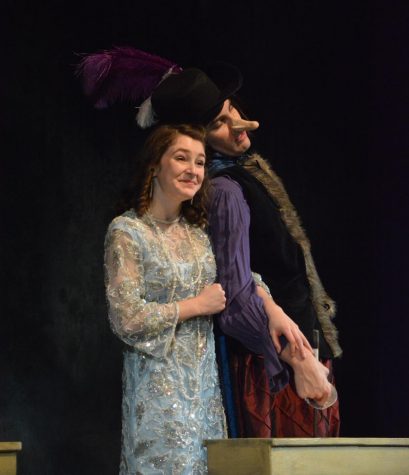
TS: What kind of career in the arts are you looking into?
AM: I am looking into musical theatre and performing as well as choreography. Well, last year I helped write a musical, and it was really interesting. I kind of like writing lyrics; lyric writing has been something that I’m kind of into. So I think for right now I want to focus on training for theatre, like performance-wise, but then going more into choreography and directing and the creative part of it.
TS: So what schools have you applied to?
AM: I’ve applied to a lot of schools. A lot of the schools that I’m applying to are musical theatre BFA programs, which are Bachelor of Fine Arts, which train you in all three disciplines but also have classes that have technical theatre and directing and choreography, so it kind of teaches you how to do it and then also gives you tools on how to create it. But most of the schools are just about training; I’ve applied to University of Michigan, Elon University, which all have very similar curriculum of teaching you how to do it, and then dabbling in other kinds of art forms too.
TS: So I know that there’s a really extensive audition process for those kinds of schools; have you started that?
AM: I started applying in September and October, and you have to submit videos to them, and then if you pass the videos, then you have to schedule your in-person auditions. I got past the initial audition for some of my schools, and now, in February, I’m going to audition for them in-person.
TS: That’s a lot of traveling.
AM: Yeah, it is. Luckily all the schools choose a week where they all go to Chicago and then you can audition there; you don’t have to go to every single campus, but there are some schools that you have to go on-campus. So you just have to figure out where you’re going to go and how much you’re willing to spend, because sometimes if it’s not possible, you just can’t audition for them in person, they will allow you to send in a video. It really just is about talking to the different schools and scheduling really well and budgeting. It’s a mess, but I mean, I really like it, and I want to do it right one time; I don’t want to do it again.
TS: Do you know what majoring in musical theatre is going to look like for you or how it might compare to majoring in musical theatre in high school?
AM: Depending on the school, there’s a lot less requirements in other studies. Like if you study English in college, you have to take other general courses that everybody else has to take as a base, but a lot of schools just require your classes in the arts that you’re taking.
TS: How do you think being a major has affected your time at McCallum?
AM: It definitely has made me learn time management. It has taught me the value of community. It’s a really big time commitment, so it’s learning how to deal with that, because after we end one show we audition for the next show the week after usually, or two weeks afterwards, so there’s not really a lot of breaks. I don’t remember the last time I went home right after school, so there’s always just something to do, which is great, but sometimes it’s exhausting to always be doing something.
TS: Has there ever been auditions for a play or a musical where you’ve decided that you weren’t going to try out for it, or have you tried out for every single production here at McCallum?
AM: I wanted to audition for every show at McCallum, but it just wasn’t possible. This last year, the fall musical I decided not to audition for because I wanted to audition for a professional show. I was like, I hope this works out, because if not I’m going to be sad that I’m not in a show. And luckily I got cast in the professional show, which is really different for me, but there have been some shows that I haven’t auditioned for just because of conflicts, like if I can’t be at a show or something. But for the most part I try to take advantage of every show that we do here, because I’m only here for four years.
TS: How many professional shows have you been in?
AM: I’ve been in four. They’ve all been at Zach, though, so it’s kind of always been like a home to me. I need to learn how to branch out to other theaters, because Zach has always been like a safe place for me. But yeah, I’ve been in four. They’re really different from pre-professional or educational theatre, but that’s where I learn the most, because you’re just kind of expected to know what’s going on and know everything and be accountable for yourself.
TS: Have you been in any leadership positions within the academy?
AM: I have, as an Academy Ambassador… I’ve had to talk about my major and know a lot about my major and talk to prospective students about it… another leadership position that I’ve been in [is that] this semester I’m helping with the choreography for West Side Story, so I’m kind of like an assistant choreographer to the choreographer Natalie Uehara, and she trusts me to be able to teach people who weren’t there to learn it, or if she’s out I have to lead a rehearsal, and I have to answer questions and know all of the choreography and be accountable for that, so that has been a challenging leadership position. And I also started a choreography club at McCallum this year, and that’s been different because everyone is younger than me, so I’m kind of the one that everyone goes to for questions, and I have to organize a club, which I’ve never done before, and organize spaces. It’s been very different for me, because I’ve always been the kind of person where someone always casts me or asks me to be in a club, but I’ve never actually made something for myself and been the person in charge, so that’s been a really fun experience that I wouldn’t be able to do if I weren’t a major at McCallum.
TS: What are you going to miss the least about McCallum theatre?
AM: The old theater’s rats are like– you can just feel that they’re there all the time. The old theater’s rats. And the rehearsal schedules. It’s so tedious. Like, most rehearsals for professional shows are like three weeks, and then you start performing, and then you have a month-long or however long of a run, but we rehearse for like three months for two hours every day usually, so it can feel kind of tedious and it can feel like it never ends. So I think just how many rehearsals there are, and how much it is, because sometimes it feels like it’s almost not productive. I know it is, but it’s just too much.
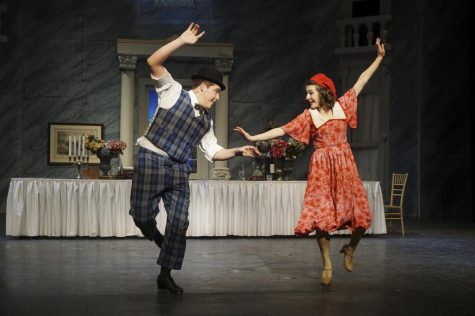
TS: What are you going to miss the most about McCallum theatre?
AM: I’m going to miss the people that I’ve met here; a lot of the people that I’ve met have become lifelong friends just because of what I said; the rehearsal schedules are so long that you’re around people for so long that you develop really deep connections with people. I’m going to miss the teachers a lot. I really like Denning; a lot of people put a lot of pressure on him to be perfect, and he’s just one person heading a huge department. There’s so many people in West Side Story, and it’s a really big responsibility. So I think that a lot of people put a lot of pressure on him to pick the right shows and to pick the right people and to cast correctly, [but] there’s just no real right way to do it. I’m also going to miss the musical theatre teacher Ms. Hersh-Mainwaring and the dance teacher, Natalie Uehara… They all just really want all their students to succeed. So I guess I’ll just miss the people the most.
TS: What has been your biggest challenge as an actress?
AM: I was actually just thinking about this. I think it’s to not become discouraged, because there’s always going to be someone who’s better than you– and that’s true for everything– but a lot of the time when you’re being [compared to] other people, and you are like, ‘oh, I wish I was taller, I wish I was this,’ there’s only one person like you in the world. You have to realize that, and I think the biggest challenge has been to not compare myself to other people and not compare my process to other people. Just because I’m not in the place that I want to be dance-wise or singing-wise as someone else, that doesn’t mean I have any less value than them; it’s just that everybody’s on a different path. So I think not comparing myself to other people and giving myself room to grow [has been my biggest challenge].
TS: What do you feel has been your biggest accomplishment in theatre?
AM: I think, with being a dance captain for West Side Story, it has been developing patience as a teacher, because I mean that’s basically what I’ve had to be, is a teacher, and I think it’s whenever I see someone understand a dance or be proud of themselves for doing a dance that I was able to teach them… it’s the most gratifying thing whenever I spend a really long time teaching someone something or going over something with someone… the fact that they can enjoy what they’ve done is my favorite part about it. So I think that teaching people to dance has been my favorite thing.
TS: What shows have you been in at McCallum?
AM: My first show was You Can’t Take It with You in my freshman year. Ghost: the Musical, but I was in the ensemble for that. But that was really fun. Sondheim on Sondheim; I was in that. I think I had a role in that. I don’t remember. Titanic, I played Alice Bean. And then Moon Over Buffalo and then Me and My Girl. Those are all the ones I can think of.



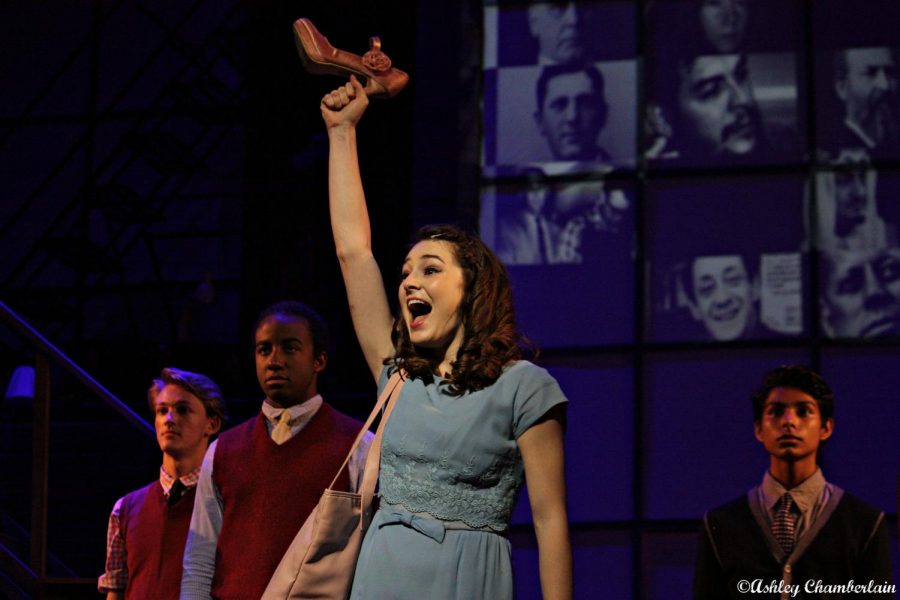
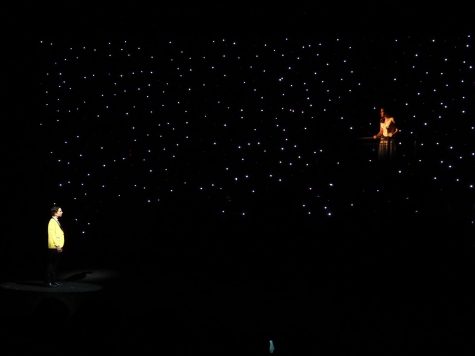
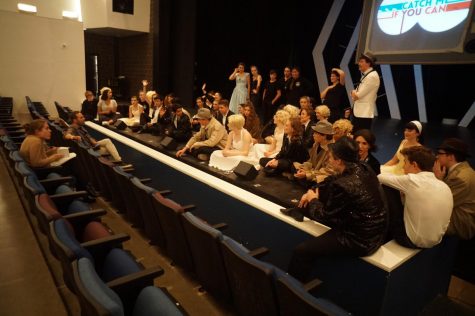
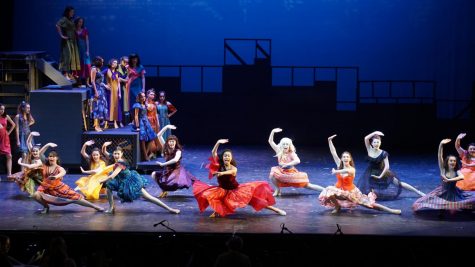
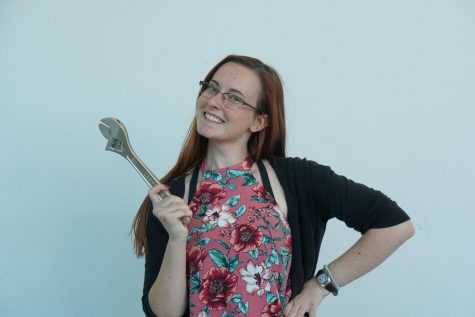
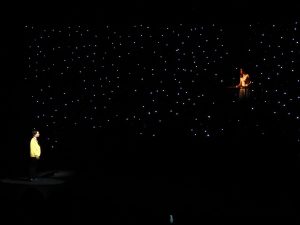
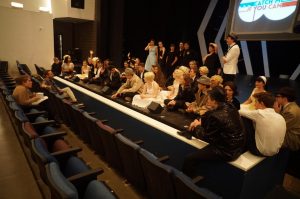
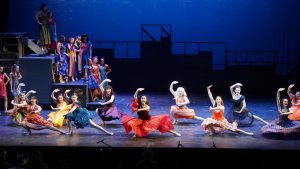

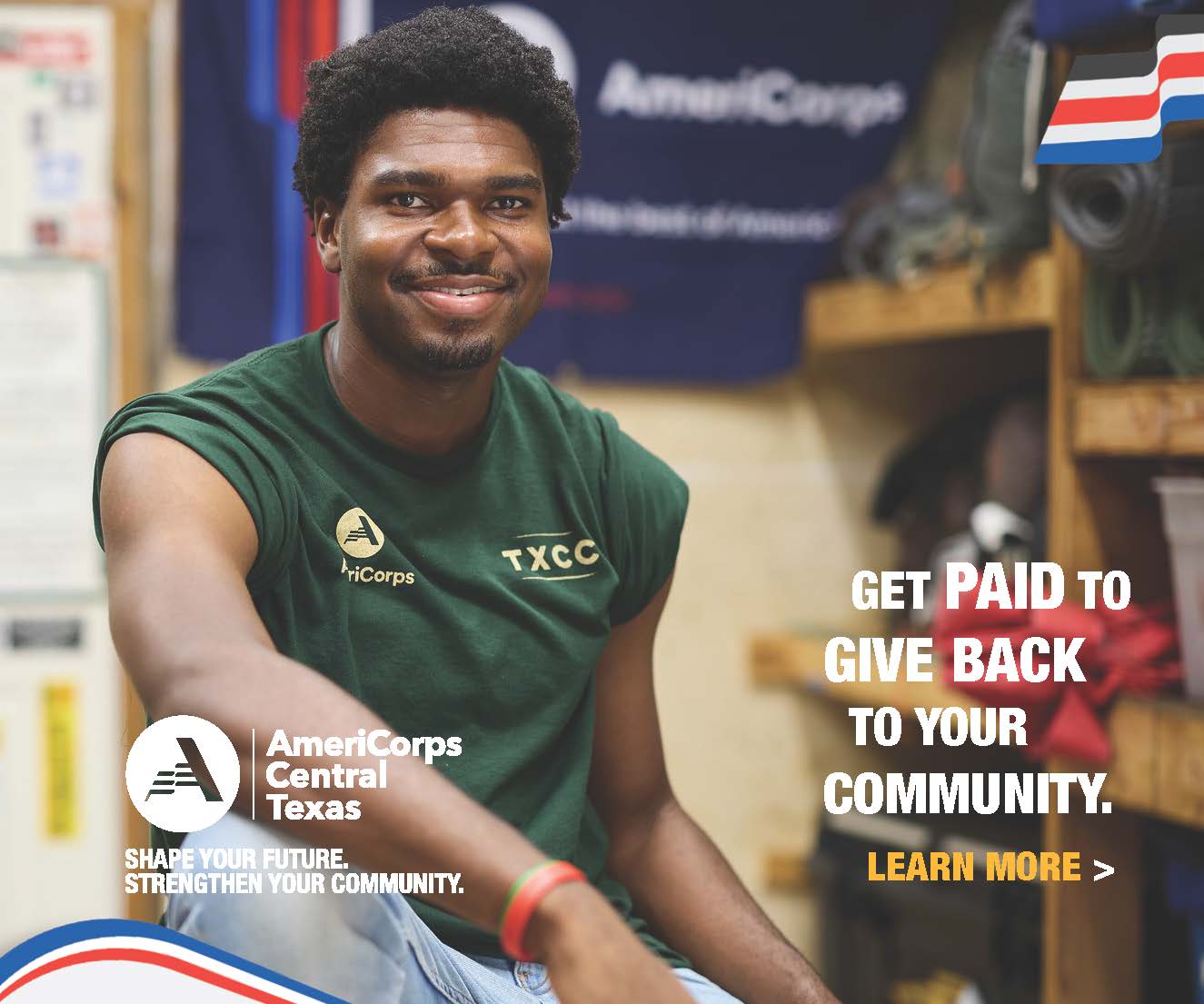
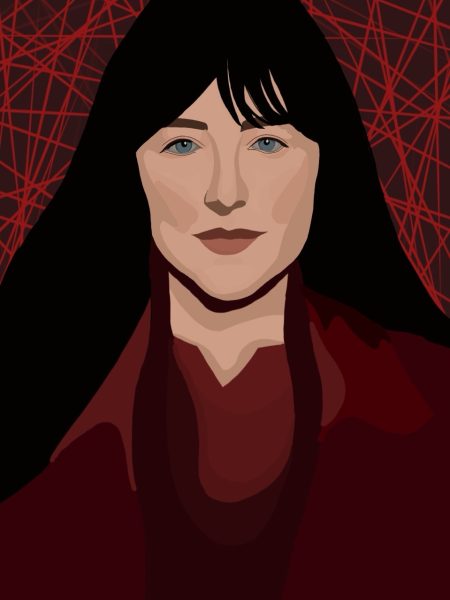

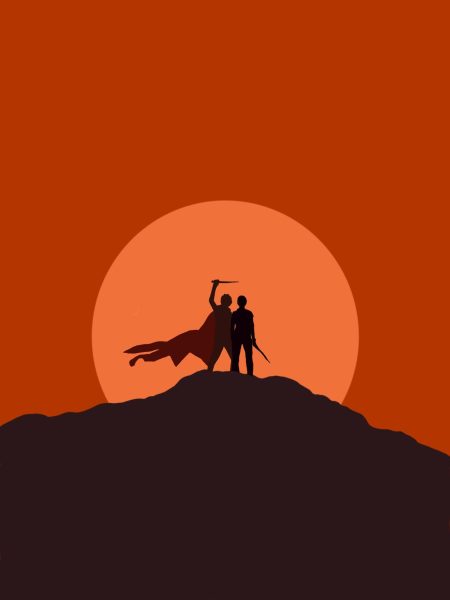
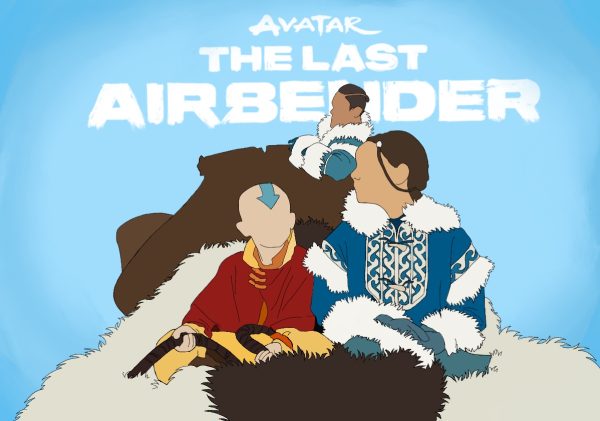
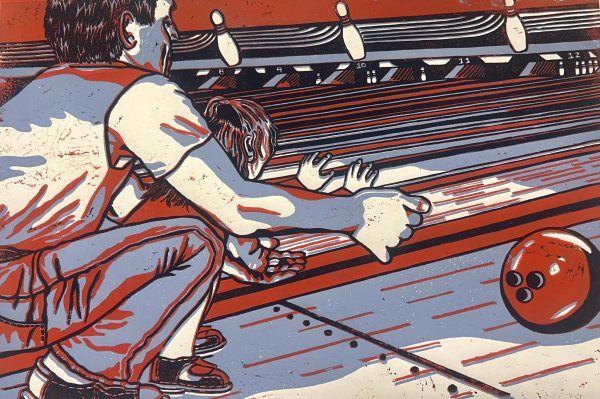
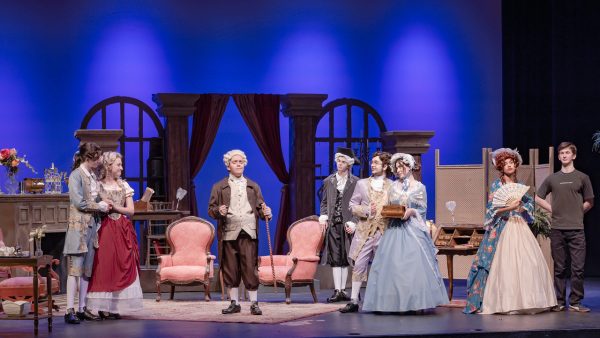

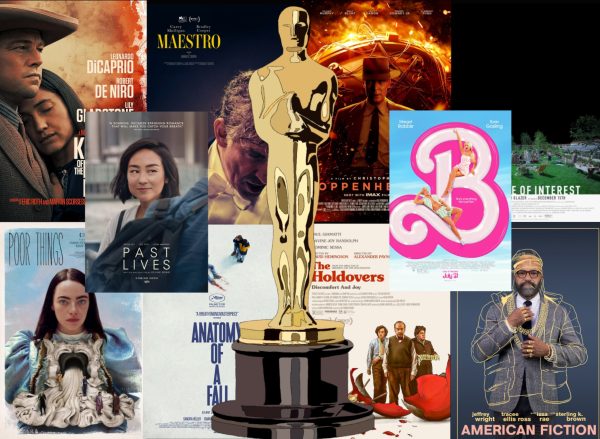
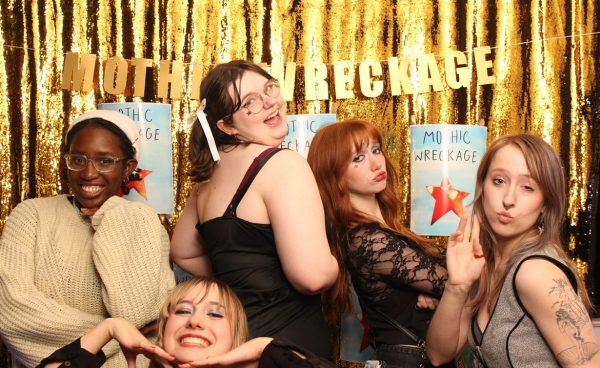


luci borowski • Mar 9, 2018 at 2:53 pm
I loved reading this article and getting to know more about Anna. She is such an amazing performer and was such a great help in West Side Story.